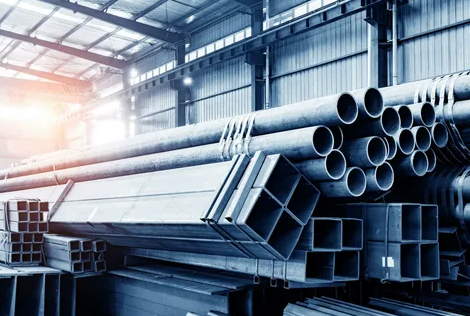Rising steel prices in China have made exporting to the country “lucrative” for some foreign steel suppliers such as Ukraine and Russia, said Miller Wang, chief consultant at Wood Mackenzie.
Indian Tata Steel also exports to China. Since April, it has more than doubled its exports. “Indian mills will continue to export until domestic demand finds new support,” said Ritesh Shah, an analyst at Investec.
But not many companies benefit from these exports. The fact is that only 2% of steel consumption in China is covered by imports. “The steel market in China is actually quite independent,” Wang said.
“Japanese steelmakers cannot access the buoyant demand in China,” said Eiji Hashimoto, chairman of the Japan Iron and Steel Federation and president of Nippon Steel.
This is in part due to the fact that construction accounts for 60% of all steel consumption in China, while Japanese steelmakers are focused on high-quality products used primarily by automakers. But Japanese businesses are still grappling with the fallout from Chinese demand - higher raw material prices. They are also under pressure from falling domestic demand.
In the end, China's appetite for steel will be satisfied. When that happens, conditions in Asian markets could quickly deteriorate if cheap exports from China spill over.
“We are closely monitoring steel exports from China,” said a Nippon Steel spokesman.
China launched an extensive stimulus package to bail out crisis-hit local companies, which was so large that it ultimately had a positive impact on the global economy. The government also provided incentives for real estate projects, which led to a sharp rise in property prices. All government measures produced an investment effect that lasted four to five years.
However, today the Chinese authorities are concerned about the housing bubble and are trying to contain the rise in property prices. President Xi Jinping said in 2017 that "houses are being built for living, not for speculation."
Currently, the task is to stabilize property prices while maintaining a certain level of economic growth.
With China's measures to control property prices, the duration of the effect of infrastructure investments will be shorter than that following the Lehman shock, Wang said, adding that "steel production will peak faster this time around."
There are already concerns about the excess steel. To allay these concerns, the Chinese government has set a goal by the end of this year to increase the share of the domestic market controlled by the country's ten largest steel producers to 60%.
Who Benefits From Steel Export To China

|
|
Azovpromstal® 18 September 2020 г. 12:18 |





